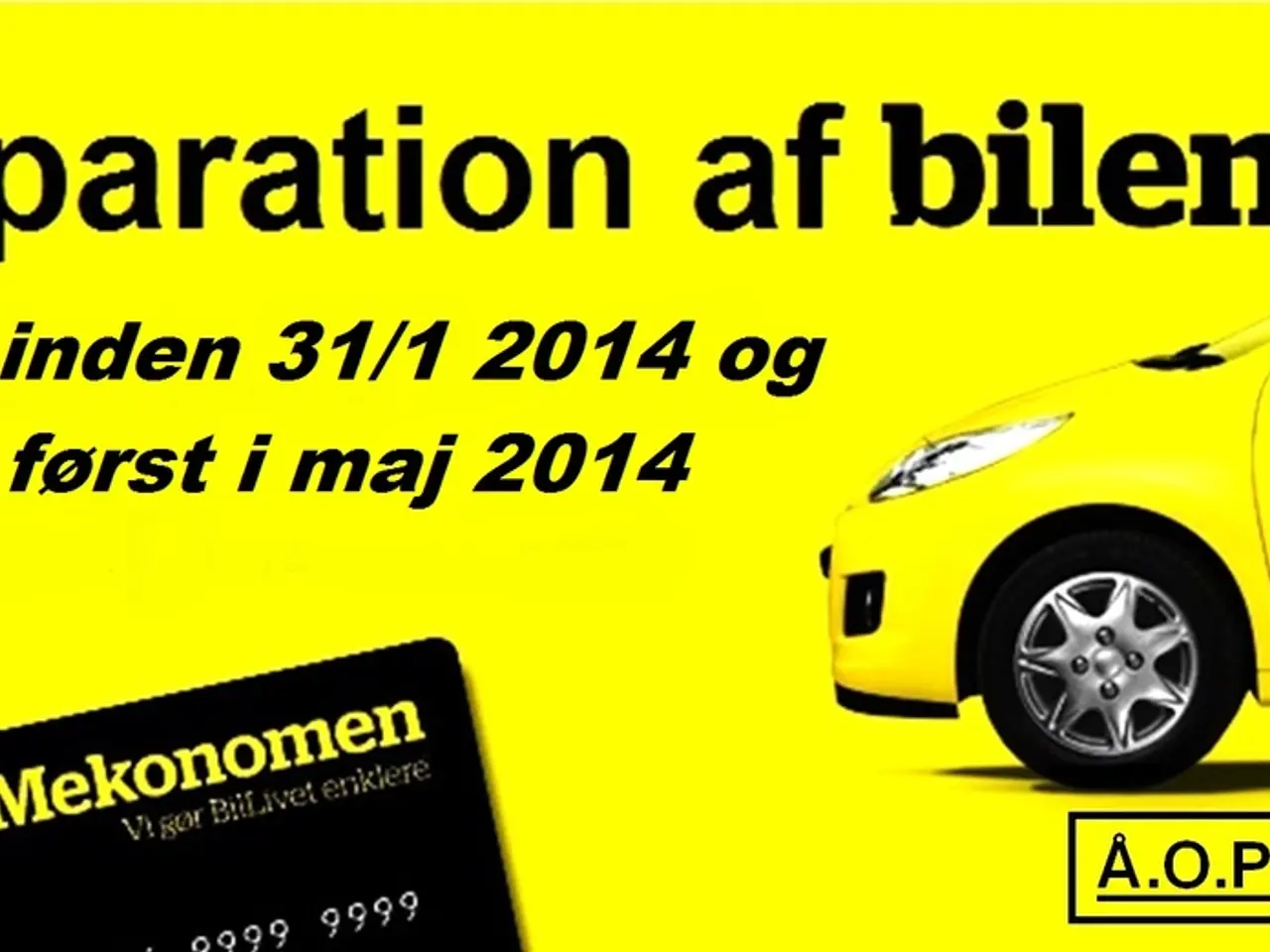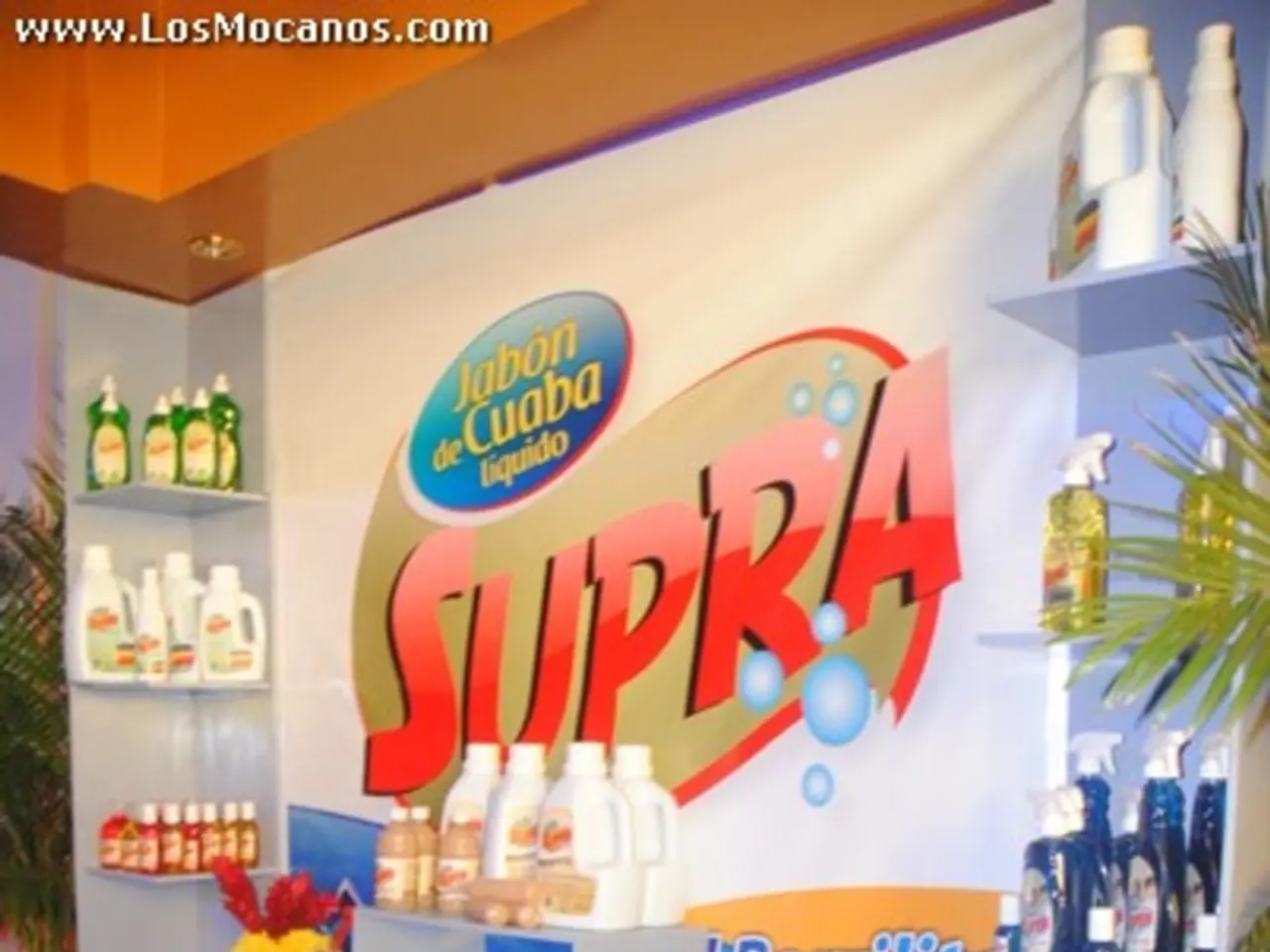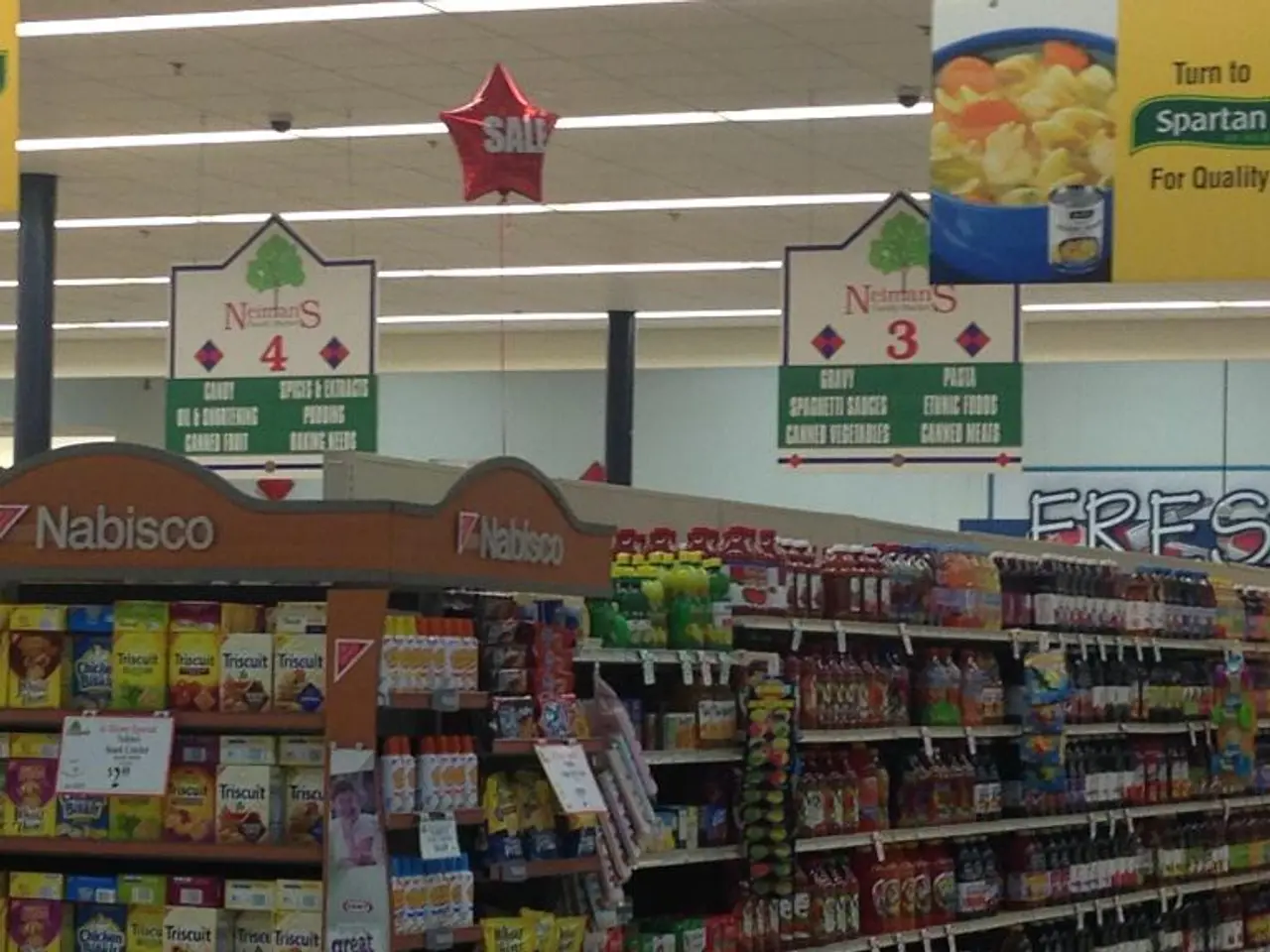Market leaders are persistently losing their market position to less expensive alternatives in the retail sector.
In the bustling world of consumer goods, private label sales have taken centre stage, outshining national brands in the first half of 2025. According to data from Circana, as reported by the Private Label Manufacturers Association (PLMA), private label sales increased by 4.4% in dollar terms, significantly outpacing national brands, which grew by only 1.1%. In unit sales, private labels saw a 0.4% increase while national brands declined by 0.6%.
The strong growth was led by refrigerated foods, which saw a 13% increase in dollar sales, followed by beverages (4.8%), frozen foods (3.8%), and general food (2.5%). Unit sales growth was highest in beverages (4.2%), with smaller gains also seen in frozen food, refrigerated, and general foods.
The private label market share reached all-time highs, hitting 21.2% in dollars and 23.2% in units during this period. The PLMA projects that total private label sales in 2025 will approach $277 billion, surpassing the 2024 record of $271 billion.
The private label segment’s growth reflects increased consumer recognition of the combination of quality, value, and innovation in store brands. Circana further notes that private labels have evolved beyond just low-cost alternatives into more innovative and differentiated product offerings, supporting continued growth especially in the U.S. market.
Notable examples of this evolution can be seen in the offerings of retail giants like Target Corp., which has expanded its private label line-up with products such as Favorite Day hot chili lime popcorn, Favorite Day peach cobbler ice cream, Good & Gather Strawberry Banana Yogurt Pouches, and more.
Frozen foods and pet care items each increased by 2% within store brands, and in unit sales, store brands rose in eight of nine departments over the last 52 weeks. The success of private labels is a testament to their ability to adapt and meet consumer demands, offering high-quality, value-for-money products that cater to a wide range of tastes and preferences.
[1] Private Label News. (2025). PLMA: U.S. Private Label Sales to Approach $277 Billion in 2025. [online] Available at: https://www.privatelabelnews.com/plma-us-private-label-sales-to-approach-277-billion-in-2025/
[2] Supermarket News. (2025). Private Label Sales Outpace National Brands in First Half of 2025. [online] Available at: https://www.supermarketnews.com/private-label/private-label-sales-outpace-national-brands-first-half-2025
[3] Progressive Grocer. (2025). Private Label Sales Surge Ahead of National Brands. [online] Available at: https://www.progressivegrocer.com/private-label-sales-surge-ahead-of-national-brands
[4] Food Dive. (2025). Private label sales surge in first half of 2025. [online] Available at: https://www.fooddive.com/news/private-label-sales-surge-in-first-half-of-2025/613166/
- In the retail business, the growing influence of private labels in the finance sector is evident, as the private label sales are projected to approach $277 billion in 2025, surpassing the previous year's record.
- The private label industry in the United States has significantly evolved, moving beyond being just low-cost alternatives, as store brands have outpaced national brands in growth, particularly in product segments like beverages and frozen foods.




